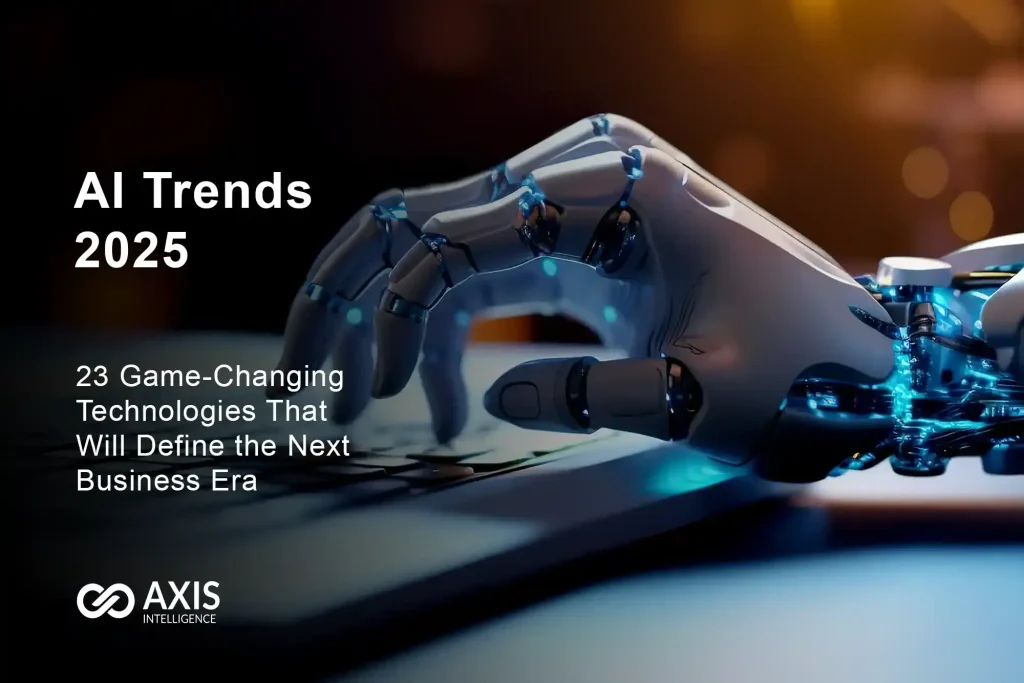Technology trends 2025 are reshaping the digital landscape by blending strategy with action, guiding both planning and execution. Across industries, leaders are evaluating how AI trends 2025, automation, and data-driven decision making will impact productivity, customer experience, regulatory compliance, and competitive advantage in an increasingly connected market. The coming year represents a shift from one-off tech moments to integrated platforms, where cloud-native architectures, scalable data ecosystems, and secure digital operations operate as a single, adaptable fabric that can respond to geopolitical, economic, and societal changes. This article highlights the major forces behind these trends, including governance, interoperability, and responsible AI, where digital transformation 2025 delivers measurable value and opens new opportunities for experimentation while helping organizations balance risk, privacy and speed, shaping how products are designed for sustainability, accessibility, and inclusion. As a result, leaders can translate insights into action, invest in talent, and design ecosystems that sustain growth and trusted experiences.
As the tech landscape evolves toward 2025, organizations are navigating a shift from isolated tools to integrated platforms that harmonize data, operations, and security. This broader movement emphasizes AI-enabled insights, automated workflows, and resilient cloud-native architectures that support scalable products and personalized experiences. Leaders are building data governance foundations, embracing API-led connectivity, and fostering cross-functional teams to turn experimentation into measurable value. From edge to core, the emphasis is on sustainable, ethical innovation that respects privacy and trust while accelerating business outcomes.
Technology trends 2025: Building resilient platforms and data-centric operations
Technology trends 2025 are consolidating into coherent platforms that speed up insight and action. Organizations are prioritizing cloud-native architectures, scalable data ecosystems, and secure digital operations to support rapid experimentation and resilient delivery. This aligns with digital transformation 2025 objectives, where value comes from data-driven decisions, unified services, and better customer experiences. The trend also encompasses edge computing, 5G, and cloud collaboration as a triad that enables real-time analytics and scalable performance, shaping the future of technology 2025 across industries.
To translate momentum into impact, leadership must couple strategy with disciplined execution. This means strengthening data governance, investing in data catalogs, API-led connectivity, and platform engineering, while managing privacy and security. Teams need new skills and governance structures to support cross-functional work, pilot programs, and rapid scaling. The emerging tech 2025 landscape demands collaboration between IT, product, and business units, ensuring that AI trends 2025 and other innovations deliver measurable ROI and improved customer outcomes.
AI trends 2025: Scaling intelligence across the enterprise
AI trends 2025 are moving beyond pilots to enterprise-wide intelligence. Large language models power customer service, automated content generation, and predictive analytics, while automation and RPA handle repetitive workflows. As digital transformation 2025 accelerates, organizations must pair AI adoption with strong data governance, bias mitigation, and responsible AI practices to balance speed with trust. The convergence of AI trends 2025 with edge computing, cloud platforms, and secure data pipelines is redefining how decisions are made in real time, supporting the future of technology 2025.
To capitalize on these capabilities, companies should build ML platforms, invest in data quality and catalogs, and establish governance that fosters transparency and accountability. Upskilling the workforce in AI literacy, cloud competencies, and privacy and security becomes essential as teams form cross-functional squads focused on high-impact use cases. The goal is to translate insights into revenue-generating actions while maintaining ethical standards and customer trust—ensuring sustainable progress across the emerging tech 2025 ecosystem.
Frequently Asked Questions
What are the key technology trends 2025 and how will they shape digital transformation 2025?
Technology trends 2025 encompass AI trends 2025, automation, edge computing, and cloud‑native platforms. To harness digital transformation 2025, organizations should build scalable data ecosystems with strong governance, adopt API‑led, secure architectures, and invest in AI‑enabled decision support. Benefits include faster innovation cycles, improved customer experiences, and more resilient operations. Practical steps include advancing data quality and catalogs, implementing machine learning platforms, and aligning DevOps with platform engineering to accelerate delivery while managing risk.
How can organizations prepare for AI trends 2025 and emerging tech 2025 to thrive in the future of technology 2025?
Organizations should prepare by investing in workforce reskilling (data and AI literacy), establishing cross‑functional teams, and building governance. Develop a strategic roadmap that prioritizes high‑impact AI trends 2025 and emerging tech 2025 use cases, supported by short pilots with clear metrics. Build secure‑by‑design platforms, data governance, API management, and platform engineering to enable scalable AI and edge‑to‑cloud workflows. Foster partnerships with ecosystem players and maintain ethical, sustainable practices to balance innovation with privacy and risk.
| Theme | Key Points | Implications |
|---|---|---|
| AI & Automation |
|
Fuels productivity and faster decision‑making. |
| Digital Transformation 2025 |
|
Faster delivery, better customer outcomes, and governance alignment. |
| Edge Computing, 5G, and the Cloud |
|
Real‑time capabilities and scalable architectures |
| Cybersecurity & Privacy |
|
Stronger security posture and regulatory compliance. |
| Sustainability, Ethics, and Social Impact |
|
Sustainable, ethical tech with trust and regulatory goodwill. |
| What It Means for Teams, Skills, and Strategy |
|
Clear roadmaps, capability maps, and upskilling pathways. |
Summary
Technology trends 2025 will not be a mere catalog of gadgets; they will redefine how we operate, learn, and create value in the digital world. By embracing AI trends 2025 responsibly, accelerating digital transformation 2025, and building resilient, secure architectures that leverage edge computing and cloud collaboration, organizations can thrive. The next era is a coordinated mix of people, process, and platforms—where emerging tech 2025 unlocks new opportunities while keeping trust, privacy, and sustainability at the center.

